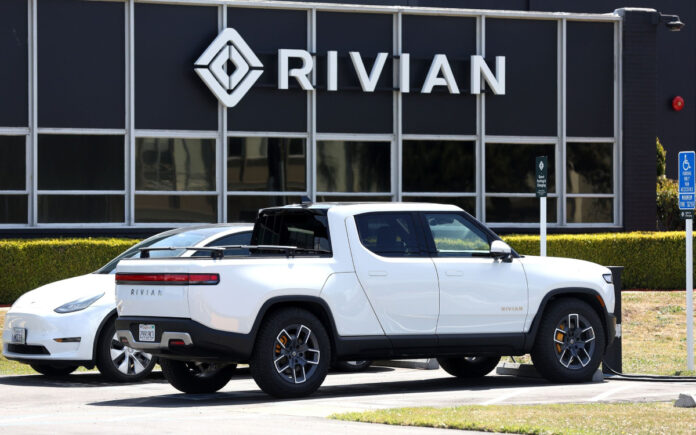Irvine, California: Rivian, the electric vehicle maker, is set to introduce its advanced hands-free driver assistance system in 2025, followed by its “eyes-off” system in 2026, according to CEO RJ Scaringe, who made the announcement on Thursday.
Scaringe explained that the new system, which enables drivers to take their hands off the wheel and eyes off the road, will provide significant value to customers. “It will add an enormous amount of value to customers,” he said, emphasizing the convenience the technology will bring to drivers.
The automotive industry has been rapidly advancing in autonomous driving features like lane-keep assist and adaptive cruise control, and Rivian’s latest move is a step further in this competitive race. Scaringe stated that these developments aim to give drivers their “time back,” allowing them to engage in activities such as using their phones, reading, or sending emails while behind the wheel.
“Developing such capabilities in systems is something we’re hyper focused on,” Scaringe said, highlighting Rivian’s commitment to enhancing driver assistance technology. Currently, Rivian’s Gen 2 vehicles feature the “Rivian Autonomy Platform,” which offers assistance but still requires drivers’ continuous attention and control, similar to systems from other automakers.
Scaringe’s announcement comes at a time of growing scrutiny on advanced driver assistance systems. Leading electric vehicle manufacturers, including Tesla, have shifted focus towards self-driving technology and robotaxis. In response to safety concerns, the U.S. National Highway Traffic Safety Administration opened an investigation earlier this month into 2.6 million Tesla vehicles due to accidents linked to a feature that allows users to operate their cars remotely.
Impact of Trump’s Executive Orders
Rivian also addressed concerns about the potential impact of U.S. President Donald Trump’s executive orders on the electric vehicle industry. The company has stated that it does not foresee substantial risk to its loan for a Georgia production plant, which was finalized in January with the U.S. Department of Energy for up to $6.6 billion.
Also Read | Historic Winter Storm Freezes US South, Creating Dangerous Conditions
Trump’s recent revocation of a 2021 executive order by President Joe Biden, aimed at ensuring 50% of all new vehicles sold in the U.S. would be electric by 2030, has sparked uncertainty in the industry. Additionally, Trump’s call for ending a waiver that allows states to adopt zero-emission vehicle standards by 2035 and his administration’s potential move to eliminate EV tax credits have raised concerns.
Also Read | Yunus Critiques Bangladesh’s Economic Boom Under Hasina as ‘Fake Growth’
Scaringe also expressed apprehension over Trump’s proposed 25% duties on goods from Mexico and Canada, warning that automakers’ supply chains—especially those involving Mexico, where billions in investment have been made—could face significant disruption. “The impact could be really damaging,” he said, adding, “So we’re watching that really closely.”



